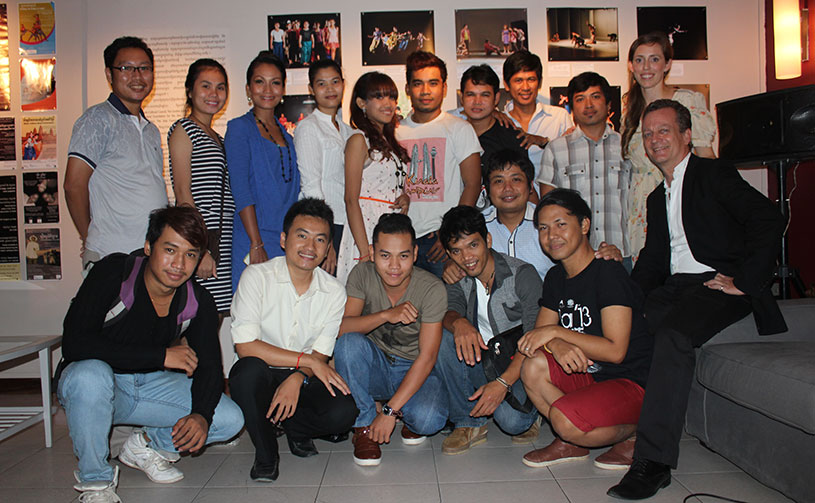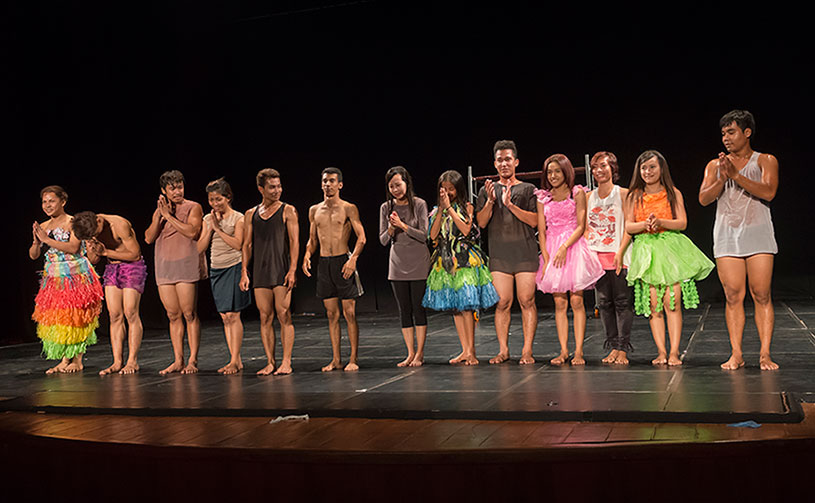|
||||||||
Amrita Performing Arts is an International NGO based in Phnom Penh, with US nonprofit status. Amrita is committed to creating Cambodian contemporary dance and theater, responding to the creative drive of a young generation of artists passionately dedicated to ushering their country's ancient performing arts heritage into the future. Amrita was founded in 2003 with a mission to help revive and preserve the wide spectrum of Cambodia's traditional performing arts through a program that emphasized national capacity building in all aspects of production management. This mission has evolved to focus more on contemporary creativity in theater and dance. Amrita Performing Arts produces fully staged productions of contemporary Cambodian dance and theater featuring professional Cambodian performers. These are developed in collaboration with internationally renowned directors and choreographers through a process of intensive workshop and dialogue. In its current phase of development, Amrita Performing Arts has become a major catalyst in helping the young generation of artists find their voice and move their creative drives forward in a proactive, nurturing and culturally sensitive environment. Highly successful workshops have led to the creation of new and exciting repertory with such artists as Belgium based choreographer Arco Renz, Indonesian choreographer Eko Supriyanto, Khmer / French choreographer Emmanuèle Phuon and Toronto based choreographer Peter Chin to name a few. These works have played to an eager and curious Cambodian audience as well as to extremely receptive audiences on international stages around the world. Amrita is now well established in Cambodia as a pioneer in Cambodian contemporary dance. We respond to the creative drives and desires of our performers who in turn are responding to a vastly different Cambodia. Our hope, through these collaborations, has been to translate the experience of current social conditions into the dance parameters of time, space and physical energy; exploring the themes of emergence from isolation towards integration within the complexities of the contemporary world and in the context of a transformed country. Our work continues to examine the relationship between tradition and the contemporary, set against the backdrop of the past and the current social milieu. |




